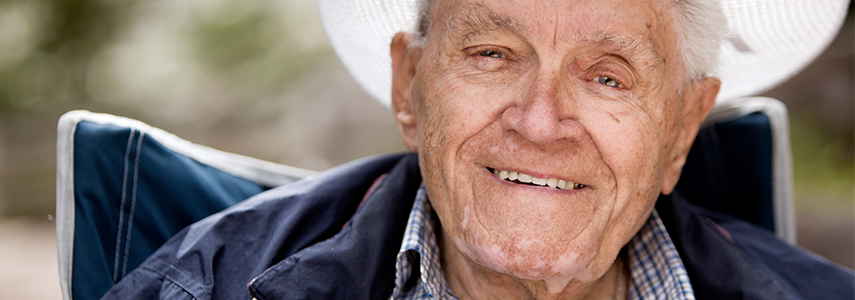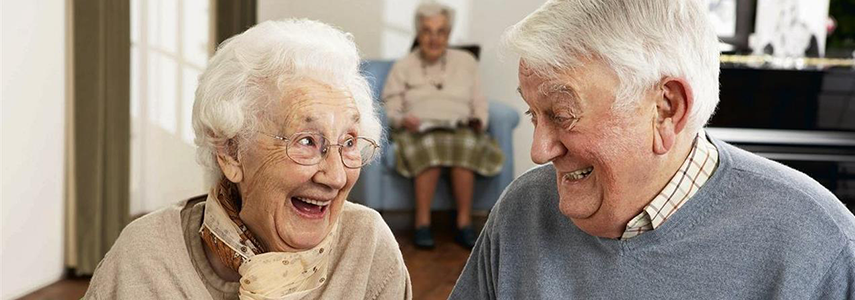When it comes to oral health, an entire branch is now taken into consideration which is made up of many fields, but which above all also affects the overall well-being of our body. This close correlation becomes more and more true with the arrival of old age. The latter involves changes in the body and the metabolic cycle that often lead to certain pathologies. What are the most common problems and risks related to oral health that an elderly person usually faces?
Old age and oral health: why are risks and dangers increasing?
Many individuals who are facing or experiencing old age have a higher incidence of pathologies that automatically influence and worsen oral health, increasing the risk of dental problems. The use of a mobile prosthesis, very common in the elderly, as well as the need to take medicines and/or drugs, can influence oral health, increasing risks and dangers even in the presence of individuals with correct and regular oral hygiene. For these reasons, in old age it becomes essential to follow rules that can improve the health of the teeth, but also the general one.
There are two handbooks above all that are valid for anyone in old age and which fall within the sphere of prevention rather than that of cures and actual remedies:
- Leading a healthy lifestyle, for example, is important for everyone, but it becomes especially so for the elderly. Therefore, give up harmful habits for health, including oral health, such as alcohol intake and smoking.
- Have a correct, scrupulous and daily hygiene of the mouth and of one’s teeth through the correct brushing of the teeth, two to three times a day, but above all after the main meals. All this accompanied by the use of specific mouthwashes and dental floss even in the presence of implants and bridges. This will certainly not erase the risks and dangers that anyone in old age can run into, but it will certainly help to postpone them or warn them in milder and less serious forms.
Diseases of the mouth related to old age

Now, let’s get into the specifics and analyze the most frequent and common risks, dangers and pathologies, related to oral health, of the elderly. The most common problems, with respect to dental health, related to ageing, are different and all have a different degree of danger.
Periodontitis or gingivitis: The withdrawal of the gums which leaves a part of the tooth unprotected by the enamel very common in old age. This leads to hypersensitivity of the teeth which is much more widespread especially after the age of 50. The exposed tooth becomes sensitive to heat and cold and, therefore, especially to the intake of hot or cold food and drinks. The situation becomes almost irreversible when this sensitivity is also felt in the air we breathe every day. In this case, good daily hygiene and the use of a specific toothpaste (and mouthwash) may not be enough and you should go directly to a specialist to rule out the risk of partial breakage of the tooth or even its fall, due to excessive sensitivity of the dentin.
Root caries: also called caries of the necks or dentin. It is a particularly aggressive bacterial wound that damages the root of the tooth and/or the space between the root and the gum. This problem is common among the elderly and is often associated with decreased saliva production or xerostomia. In these cases, in addition to daily hygiene, an oral and professional hygiene session is recommended every six months. To prevent it, it is also important to use a fluorinated toothpaste which can help limit the risks associated with this pathology.
Xerostomia: indicates when you have a dry mouth due to lack of saliva. Xerostomia, sometimes identified simply as dry mouth, can cause difficulty speaking and eating. In many cases it can also lead to halitosis. It turns out to be a common problem among the elderly often due to the excessive use of drugs (as written in the first paragraph, in the long run it can be a problem for the elderly) or caused by other pathologies. Xerostomia puts those in old age in front of a greater exposure and predisposition to diseases such as caries, acute gingivitis, candida infection, burning of the oral mucosa, dryness and fissures of the lips. The only remedy for this problem is a consultation with a trusted specialist who will help you get out of it or limit and postpone risks and dangers.
Implantology: the solution to (almost) all problems

The most common pathology, but above all the most dangerous, for those in old age is undoubtedly periodontitis. On average, it affects the elderly moderately severely. Data and percentages that in recent years have grown with the increase in the average age of the population. In a society where the elderly are the majority of the population, as happens in Italy, in fact, it is essential for dentistry to pay greater attention to this age group. The average age of an individual has increased in recent years; progress, correct nutrition and greater attention to dental therapies have allowed many people in old age to keep their natural teeth, but this has also led to an increase in periodontitis. The latter, as we well know, is a pathology that in the long run leads to the fall of one or more teeth, sometimes even of the entire arch. Elderly patients are often distrustful of their oral situation. A good percentage of them think it’s too late to fix it and find a smile and a little serenity. The experience of our implantology center in Milan allows us to disprove these prejudices. There is no age for implantology and with immediate loading surgery, even an elderly patient can have fixed teeth in a very short time. Also in this case the limit is not the age, but the clinical conditions of the patient. The elderly patient could not face an implant surgery only if:
- You have previously had a heart attack or have heart disease;
- There is manifest osteoporosis or other bone disease;
- He is a diabetic patient;
- He has mental problems;
- You are immunosuppressed or have other immunological diseases.
The age for implantology is therefore not a limit, the important thing is to rely on a dental center specialized in implantology. You are never too old to have your teeth fixed or replaced. Our Sanident center in Milan, in via Settembrini, 6, specializes in implantology and for years has been involved in restoring a smile and a good mood to many individuals who are fully living their third years. If you also want to smile again, book a first visit without obligation. Find out how to improve the quality of an ever longer life.
















